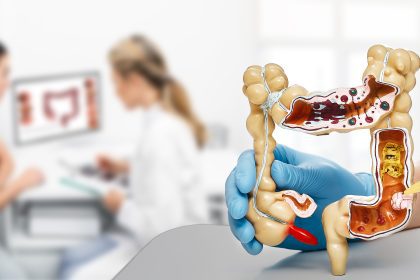In a world obsessed with quick-fix detox solutions, from juice cleanses to fad diets, nutrition experts are turning their attention to a more sustainable approach: leveraging the body’s natural detoxification processes through strategic food choices. This shift focuses on supporting the body’s innate ability to cleanse itself, particularly during sleep when cellular repair and regeneration are at their peak.
The science of sleep and detoxification
Recent studies have shed light on the intricate relationship between sleep and the body’s detoxification processes. During sleep, the brain’s glymphatic system—a network of vessels that removes waste products—becomes more active. This natural cleansing mechanism works in tandem with the liver and kidneys to eliminate toxins accumulated throughout the day.
Sleep researchers explain that this nighttime detoxification process is crucial for maintaining cognitive function and overall health. What we eat before bed can significantly impact the efficiency of these processes.
Nutritional support for nighttime detoxification
While the body is adept at cleansing itself, certain foods can enhance this natural process. Nutritionists are now advocating for a more holistic approach to detoxification, focusing on foods that support liver function, reduce inflammation, and promote quality sleep.
Key foods that may enhance nighttime detoxification include:
- Cruciferous vegetables like broccoli and cauliflower
- Antioxidant-rich berries
- Fatty fish high in omega-3s
- Herbs and spices such as turmeric and ginger
These foods are rich in compounds that support the liver’s detoxification pathways and provide antioxidants that neutralize harmful free radicals.
The controversy surrounding detox claims
The term “detox” has been a buzzword in the wellness industry for years, often associated with extreme diets and unsubstantiated health claims. This has led to skepticism among health professionals about the concept of detoxification through diet.
Many gastroenterologists caution against overemphasizing the detox properties of specific foods. While certain nutrients can support liver function, there’s no scientific evidence that any food can detox the body in the way many people understand it.
Instead, medical professionals advocate for a balanced diet rich in whole foods, which naturally supports the body’s detoxification organs without the need for specialized cleanses or supplements.
The role of hydration in nighttime detoxification
Hydration plays a crucial role in the body’s ability to eliminate toxins, yet many people overlook its importance, especially in the evening hours. Nutritionists recommend maintaining adequate hydration throughout the day and into the evening, but caution against consuming large amounts of liquid right before bed, which can disrupt sleep.
Herbal teas, particularly those with chamomile or peppermint, are often recommended as a hydrating evening beverage that may also have calming effects, promoting better sleep quality.
The gut-detox connection
Emerging research is highlighting the significant role of gut health in the body’s overall detoxification capabilities. The gut microbiome, composed of trillions of bacteria, plays a crucial role in breaking down toxins and preventing their absorption into the bloodstream.
Probiotic-rich foods like yogurt, kefir, and fermented vegetables are gaining attention for their potential to support gut health and, by extension, the body’s natural detoxification processes.
Lifestyle factors that complement nighttime detoxification
While diet plays a significant role in supporting the body’s detoxification processes, experts emphasize that it’s just one piece of the puzzle. Other lifestyle factors that can enhance nighttime detoxification include:
- Regular exercise, which promotes circulation and lymphatic drainage
- Stress reduction techniques like meditation or deep breathing exercises
- Maintaining a consistent sleep schedule to support the body’s natural rhythms
These practices, when combined with a nutrient-dense diet, create a holistic approach to supporting the body’s natural cleansing mechanisms.
The future of detoxification research
As interest in natural detoxification grows, researchers are exploring new avenues for understanding and enhancing the body’s cleansing processes. Current areas of study include:
- The impact of circadian rhythms on detoxification efficiency
- The role of specific phytonutrients in supporting liver function
- The potential for personalized nutrition plans based on individual detoxification needs
These emerging fields of study promise to provide a more nuanced understanding of how diet and lifestyle can support the body’s natural detoxification processes.
A balanced approach to natural detoxification
As the wellness industry continues to evolve, the focus on supporting the body’s natural detoxification processes through diet and lifestyle choices represents a more sustainable and scientifically grounded approach to health. While no single food or practice can detox the body in isolation, a balanced diet rich in whole foods, combined with adequate hydration and healthy sleep habits, can optimize the body’s innate ability to cleanse itself.
By shifting away from extreme detox regimens and towards a more holistic approach to nutrition and wellness, individuals can support their body’s natural processes and potentially enhance their overall health and well-being. As research in this field progresses, it’s likely that our understanding of how to best support the body’s detoxification processes will continue to evolve, offering new insights into the complex relationship between diet, sleep, and health.
This story was created using AI technology.















